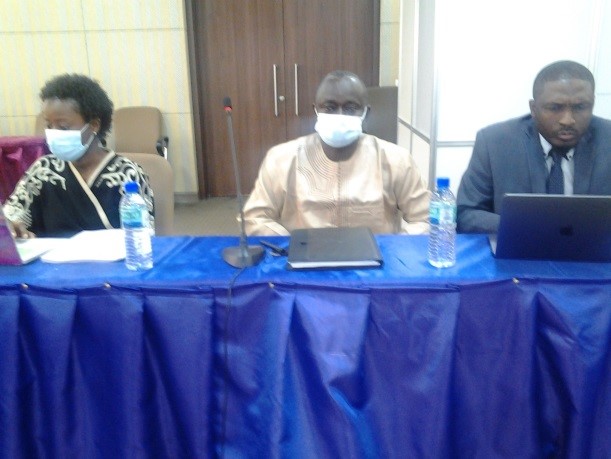By: Kebba AF Touray
The parliamentary joint committee on Public Enterprise Committee (PEC) and Environment, has yesterday validated the draft report on the Bill entitled Petroleum Commission Bill 2020, at the National Assembly.
The object of the Petroleum Commission Bill 2020, is to provide a regulatory framework for the management and development of petroleum activities in the Upstream and Midstream sectors, in order to ensure optimum exploitation and utilization of petroleum resources, to facilitate the optimum socioeconomic development of the Gambia and the enhancement of the general welfare of the people.
The Bill was introduced during the Fifth Assembly sitting of the Second Republic on Thursday 2nd July 2020 at the Third Ordinary Session of the 2020 legislative year. On 17th July 2020, the members debated on the merits and principles of the bill and at the conclusion of the debate, the question was put for the bill to be read a second time.
The bill was read for the second time and referred to the Assembly Business Committee (ABC) for committal to the relevant committee or committees as stipulated in Standing Order 68 of the National Assembly.
Subsequently, the ABC remitted the bill to a joint committee of PEC and the Select Committee on Environment, for scrutiny, consideration and report its findings and recommendations to the plenary, and the joint committee commenced scrutinizing it on the 5th October 2020, to strategize and identify the way forward to fulfill its mandate as enshrined in Standing Order 69,107,108 and 109, which provides the procedural guidelines to perform its task.
The process brought together Officials of the Ministries of Petroleum, Justice and Finance, the Gambia Chamber of Commerce and Industry and Gambia National Petroleum Company among other stakeholders, to have their inputs in the bill before the adoption by parliament.
In order to gather evidences as per the bill, the committee used methodologies such as calling the relevant witnesses to testify before the joint committee, called for submission of documentary evidence, held convergence meeting to rationalize and harmonize proposal and amendments and meeting to validate the bill with proposed amendments on the it (bill).
During the interface, the witnesses emphasized the necessity for the Board and Management to manifest competence and professionalism in all their undertakings in the service of the commission.
The witnesses also expressed how to prevent political interference and evidence was adduced on the probable ways of shielding the commission members from undue political interference in the performance of their duties, as indicated in the proposed amendment covering clause 6 to 16.
The witnesses also concurred that the Commission should not be deprived of public financial support if necessary, but it should be anchored on credible self-financing means and schemes resting on pillars of transparency and accountability in financing management.
The witnesses also envisaged that the commission would be a regulatory body overseeing the proper development of the Upstream and Midstream sectors and must take binding decisions that may be subject to appeal, but should be free from any political interference.

Officials of Petroleum Ministry
The joint committee inter alia observed that since the initial intention was to have the bill enacted in 2020, but this has not materialized, it called for amendment on clause 1 which reads “Petroleum Commission Bill 2020”.
The commission thus recommended that since the bill is to be enacted in 2021 if passed in 2021, it was necessary to amend clause 1 of the bill by removing the year 2020 in the bill and inserting the year 2021.
Mr. Fafa Sanyang, the Petroleum Minister, congratulated the joint committee for what he described as an excellent job on the bill.
He said: “the report is succinct, detailed and has captured all concerns, opinions of the stakeholders and the proposed amendments are well presented in the report. The report is perfectly documented and we would like to thank the joint committee for the job well executed”.
Halifa Sallah, Chairperson of PEC and Co-Chair of the joint committee, thanked the Officials of the Petroleum Ministry for their approach and the dedication they have shown during the entire process of scrutinizing the bill.
He said that they would now further enrich the report and present it before the plenary for final adoption.


